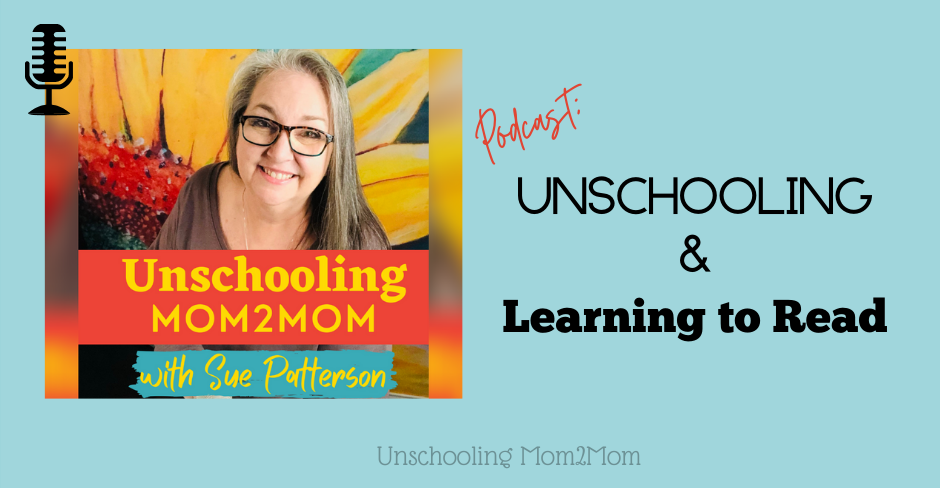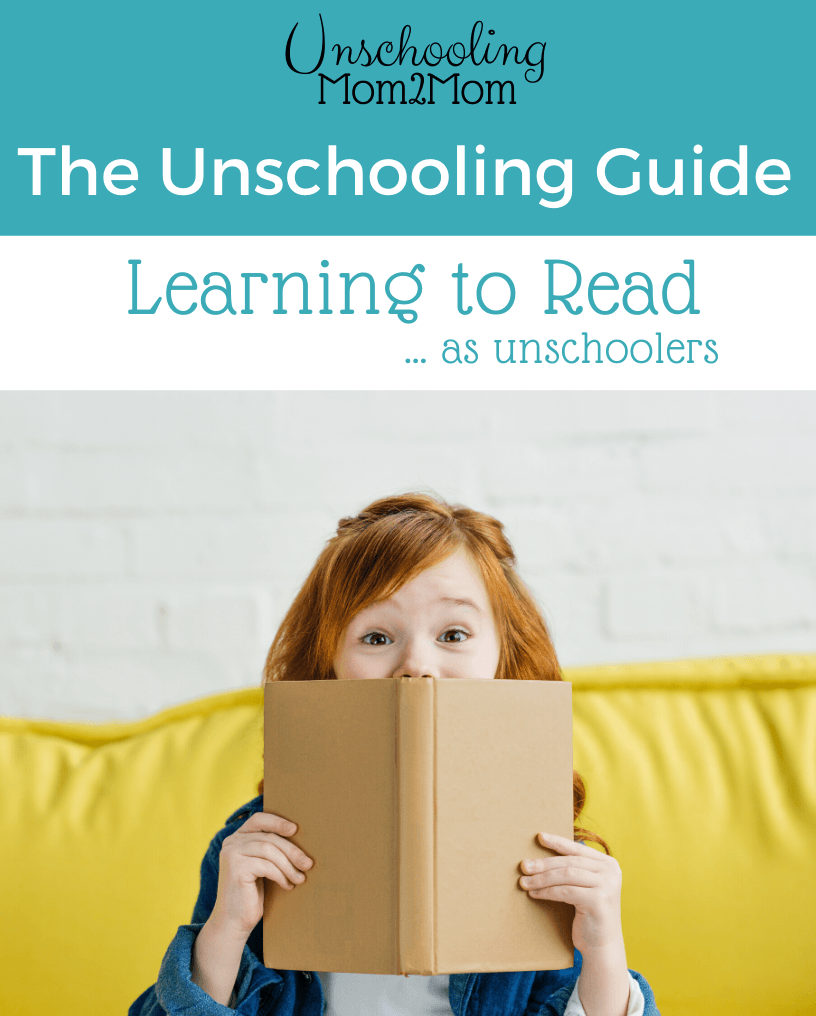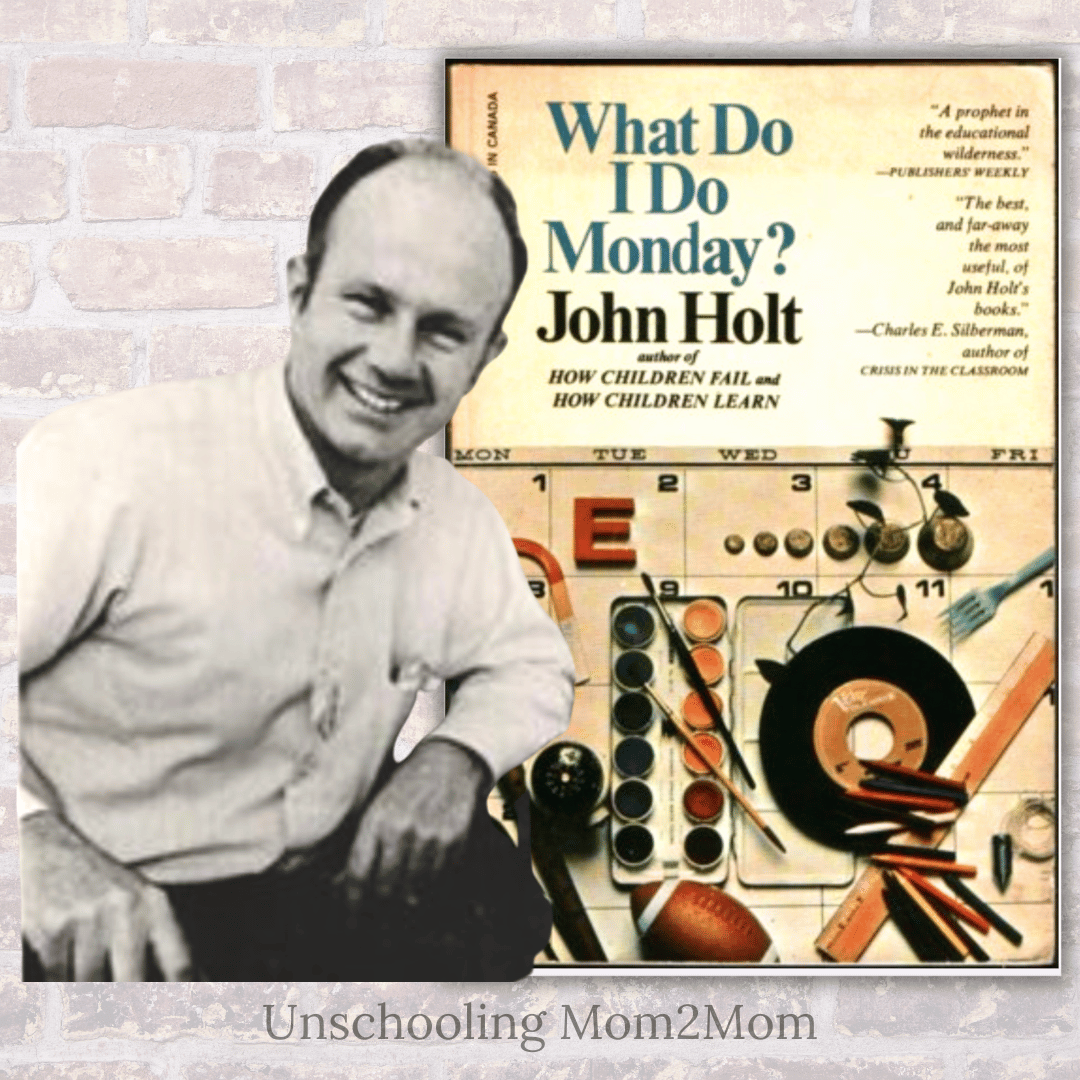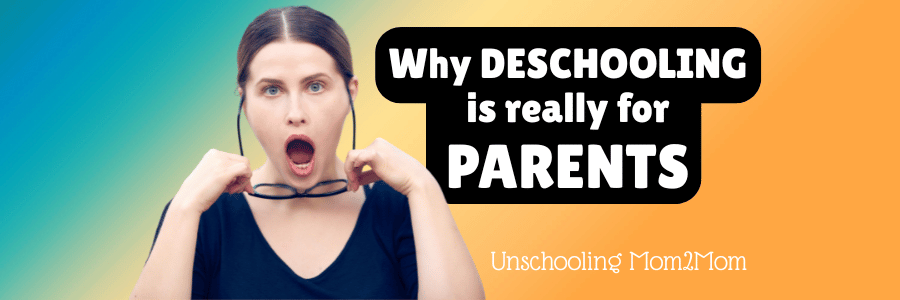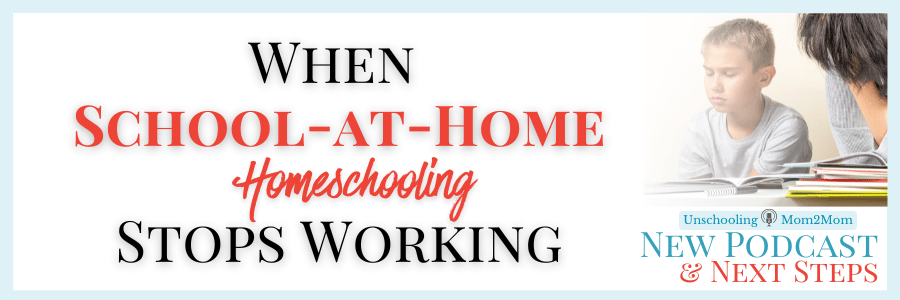Ok...now specifically to the reading issue.
If you ask unschoolers in online forums or at park days about your child who is either not showing many signs of being interested in reading - or maybe showing NO signs - you’ll hear,
“don’t worry about it!” and “they’ll figure it out!”
While they're right, two things are wrong with those responses:
- It doesn’t help a worried parent.
- There really ARE some things you can do (and some specific things to avoid doing!)
I give a lot of practical suggestions in the
Unschooling Guide: Learning to Read
but I want us to focus on our own beliefs and thoughts about it first.
Parents want to do what's best for their child. At least the parents I work with do!
Unfortunately, many of us don't have a lot of good information on how to help kids with reading. We've been conditioned to believe that "good parents" force their child to learn sounds or memorize words whether or not the child is interested. We think of the school approach as the tried-and-true way to go about this
Also, unfortunately, as many parents have learned, this can backfire.
You can make the "Learn to Read" environment so distasteful that the child wants to avoid it at all costs.
Or worse, believes something is wrong with them because they can’t do what their parent is asking them to do.
In the same way that we can't rush learning to walk or to potty train - we can't rush a brain to learn to read.
You're already on the right path - trying to learn whatever you can so you can support your child. It takes a little time to undo some of the stories we may have in our heads about learning to read and we may need to spend a little time educating ourselves. We have a tendency to move toward what's familiar or what society pushes toward us.
And in the case of learning to read, we may need to reframe some things. Sometimes this can be hard when we get criticism or raised eyebrows from others - especially when we're still learning about it all ourselves and/or our child isn't reading yet.
Remember, as I’m making suggestions or you read various ideas, it’s not unusual to hesitate or to see where that idea isn’t true. But that’s fear jumping in to keep you safe. It wants us to resist any new ideas and tells us that
"your child's future is at stake!!!" When these kinds of dramatics happen in our heads, remind yourself that that's just fear trying to run the show and keep you in your lane.
Sometimes it helps to do a little self-talk,
"I get it. It's scary. But I'm going to set aside my fear right now."

